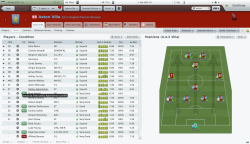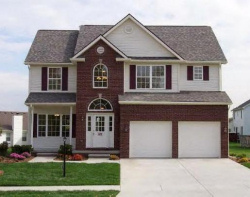Buying Houses, The Futility Of Player Valuations And James Milner
Written by Dan on July 23, 2010
As armchair managers, our job is no more complicated than dreaming up wish lists of players, deciding who gets to start in the team sheets and what formation they will play and assigning arbitrary valuations of players for transfer market purposes. Yes, arbitrary values, and buying players is no more complicated that writing that value on a bit of paper and feeding it into the fax machine.
 A player is worth what the buying club are willing to pay and what the selling club are willing to accept in recompense. No more, no less. We can look to transfers of other, similar players as much as we like, it’s a useful guide to a point, but doesn’t have any real bearing. We can consider what the player was purchased for, but that is largely irrelevant.
A player is worth what the buying club are willing to pay and what the selling club are willing to accept in recompense. No more, no less. We can look to transfers of other, similar players as much as we like, it’s a useful guide to a point, but doesn’t have any real bearing. We can consider what the player was purchased for, but that is largely irrelevant.
There’s no getting away from the fact that he cannot be sold for more than the buying party is willing to pay or less than the selling party is willing to sell.
On top of this, one of the factors that the majority of fans seemingly fail to appreciate when drawing their entirely subjective comparisons is that there’s a world of difference between selling a player who you’re very happy with at the club and is in your long term plans and a player who is perhaps getting into the latter stages of their contract and, though they may be a decent player you’d be happy to keep, you’d be equally tempted by a fair offer. That’s not even to mention the players that just don’t fit and you’d get shot of in a second or have actively sought to find a buyer for.
House For Sale
Let’s draw an analogy. Imagine you own a house, a nice detached four bedroom house with a double garage in a great neighbourhood. Let’s say its market value is £500,000. Admittedly, the analogy does fall down a little here since property values are very much influenced by sales of similar properties in the area, but there are also other factors and bricks & mortar comparisons are far less subjective than football players.
Now, your house might be valued at £500,000, but that’s largely meaningless until you come to sell it. Sure, it’s an asset that you can borrow against as collateral, but otherwise it’s just numbers on paper, it doesn’t put food on the table. If you needed to sell for some reason, perhaps you’ve been offered a job in another area and need to move, you may well put it up for sale at £500,000, but if the market is depressed and you only receive offers in the region of £400,000, then what? I guess it’s only worth £400,000, take it or leave it.
 On the flip side, imagine you are entirely content in your home, not even the slightest thought of moving in your mind, and there’s a knock at the door one day. You open the door to find a clearly very wealthy man who informs you that he’s in love with your house and has to have it.
On the flip side, imagine you are entirely content in your home, not even the slightest thought of moving in your mind, and there’s a knock at the door one day. You open the door to find a clearly very wealthy man who informs you that he’s in love with your house and has to have it.
He offers you £500,000, that’s what it’s worth, right? Are you going to take it?
I’m going to assume you wouldn’t. Surely he would have to make it worth your while. Whether you’re willing to accept £750,000 or you’d want at least £1,000,000 is down to you and whether he’s willing to meet your price will define whether the transaction takes place. Nothing else.
OK, so let’s pretend that our property admirer scratches you where you itch at £750,000. You know there’s a very similar house to yours around the corner that’s up for sale and you reckon a swift cash offer in the region of £450,000 will get you the keys. It’s a bit of hassle, but that’s £300,000 profit for you. As they say, a nice bit of business.
Fast forward 2 years and our rich man is no longer so happy in your old house and puts it up for sale. Market values in the area have increased a little, but the market is still a bit flat and £600,000 would be about fair. He paid £750,000 though, so he puts it up for sale at £825,000. Do you think he’ll get many interested buyers? Should anyone looking to buy a house in that area care what he paid? Will they give him anything close to £825,000 when the house across the street is available at £600,000? No, of course not.
Granted, one other factor that causes the house analogy to fall over is that it’s an inanimate object. It has no thoughts or feelings, it has no ambitions and certainly doesn’t have to get along with a squad of other houses. However, the point of having to pay more for something that is not for sale stands.